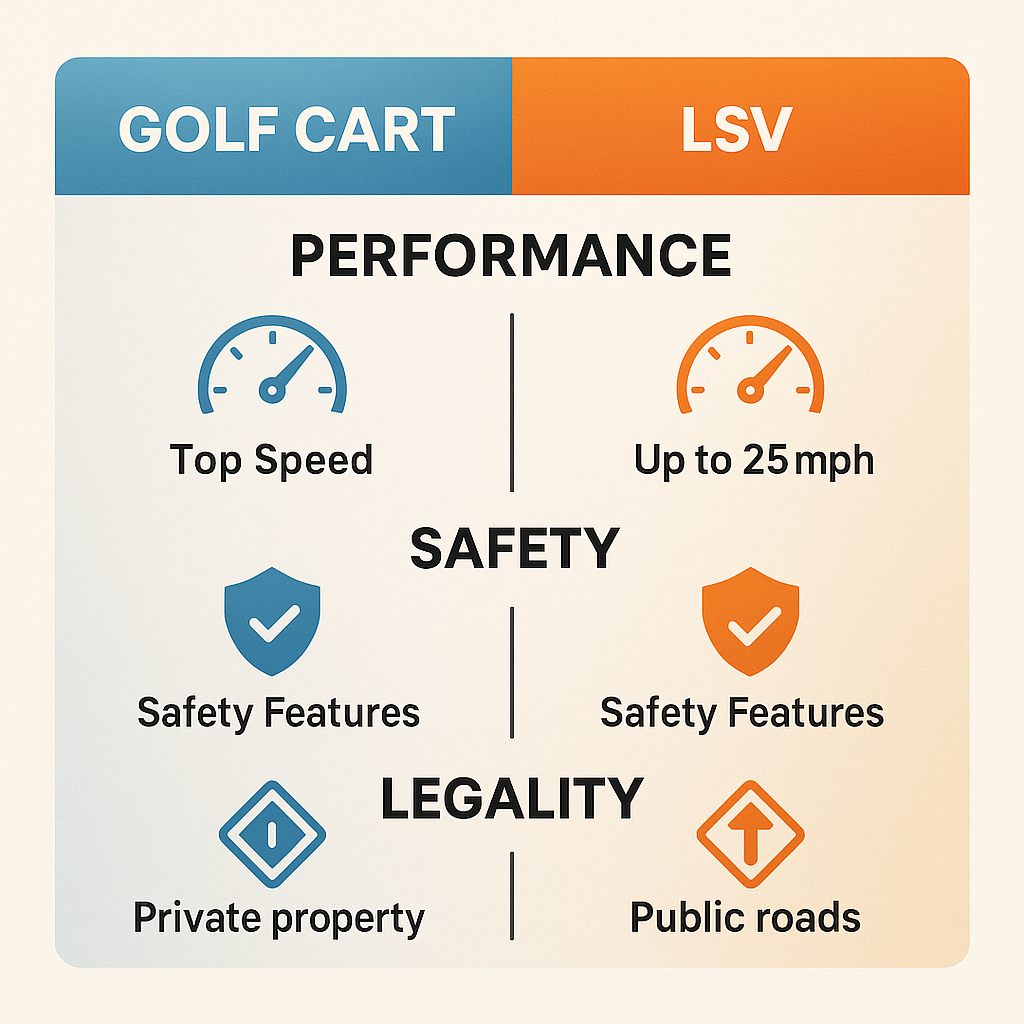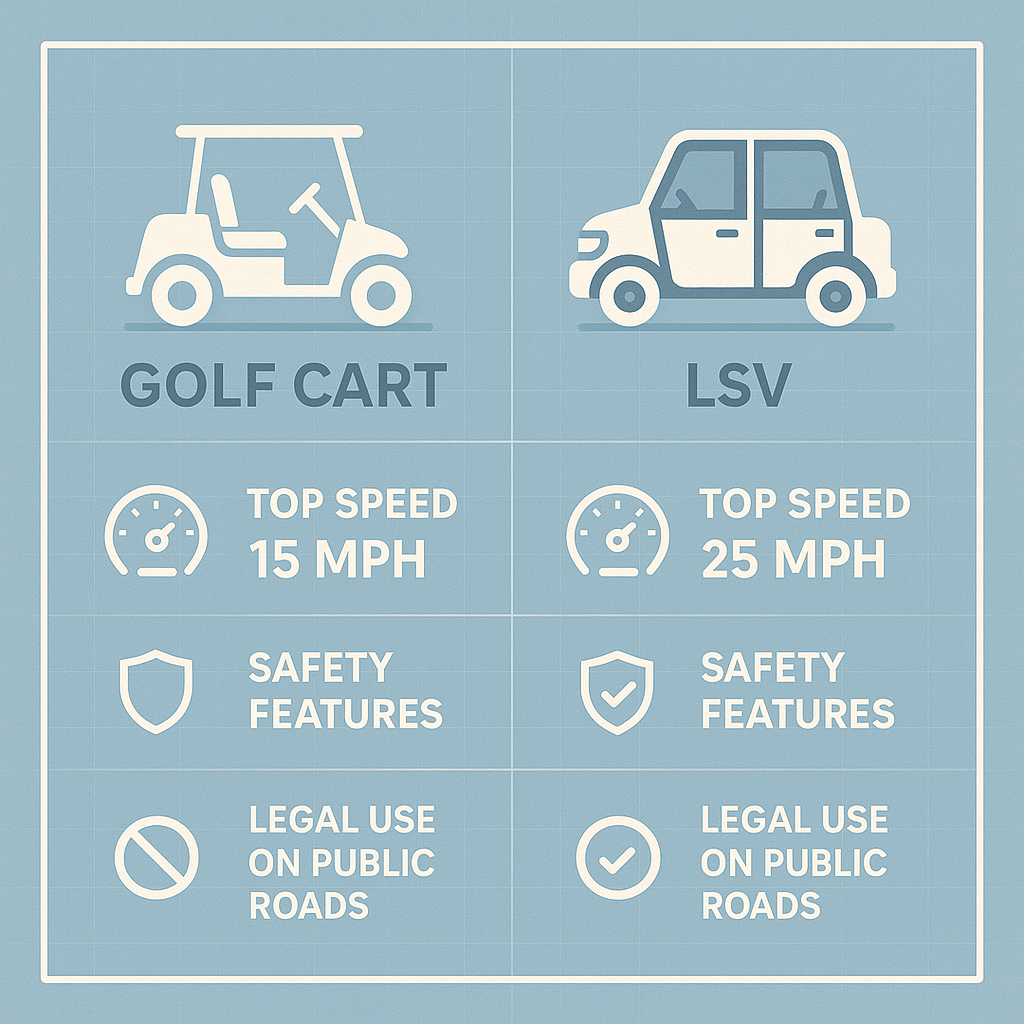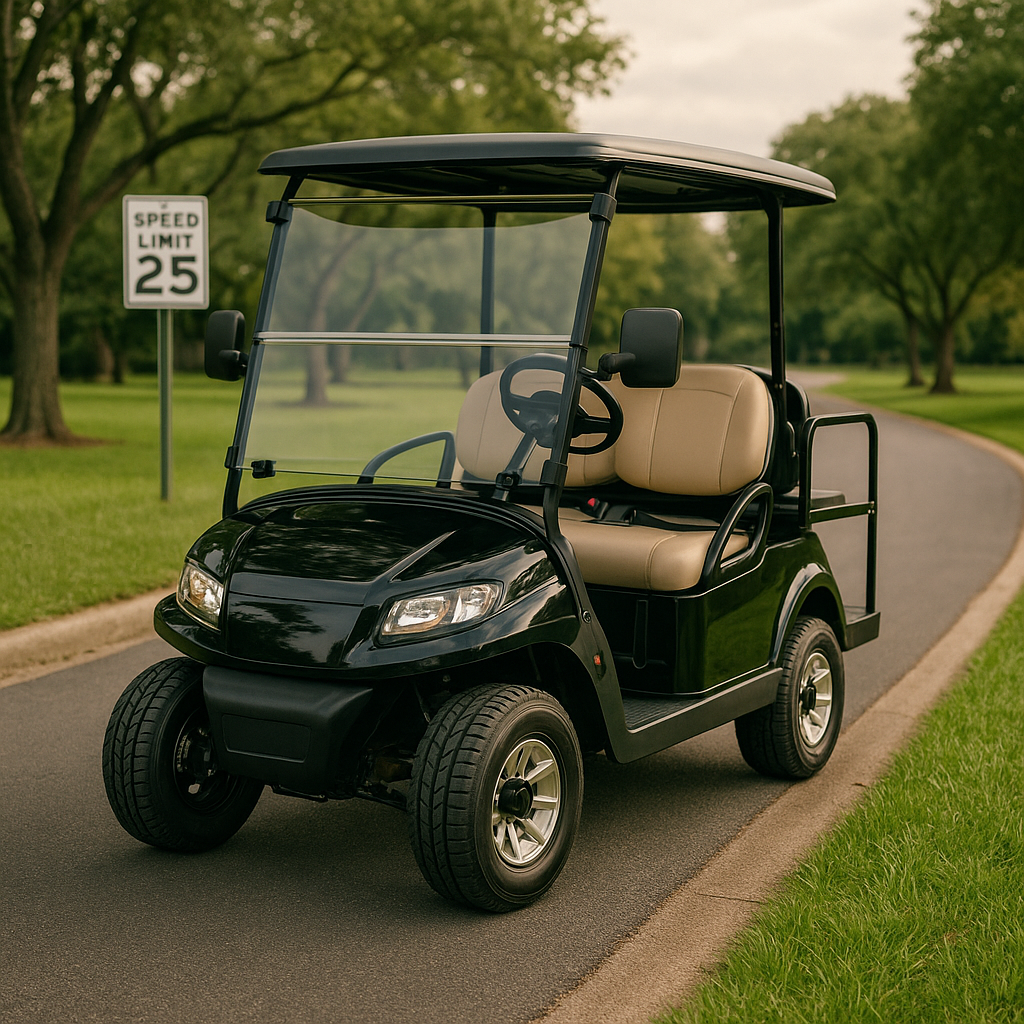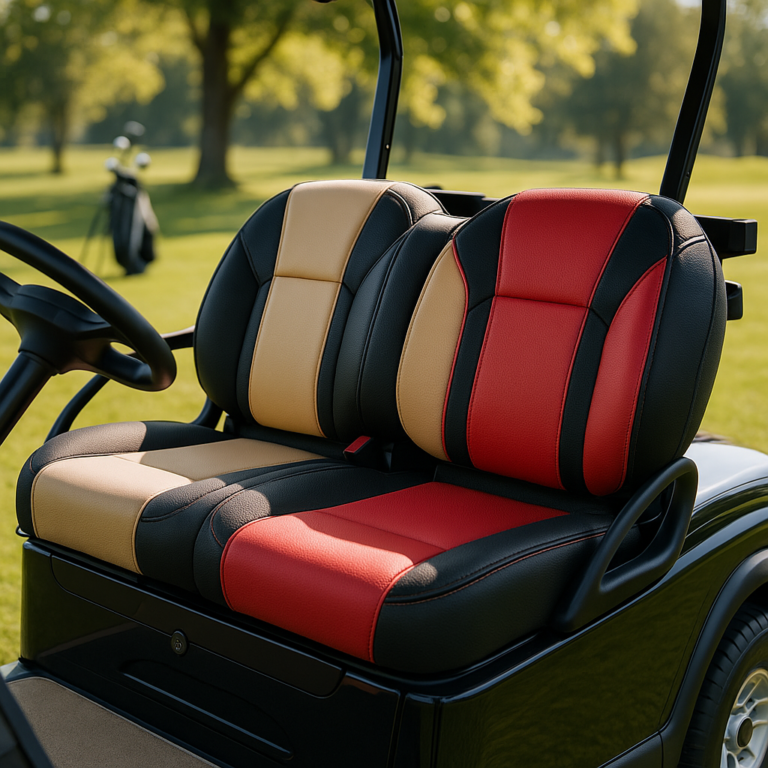Do You Need a License to Drive a Golf Cart? 11 Laws That Could Cost You Big!
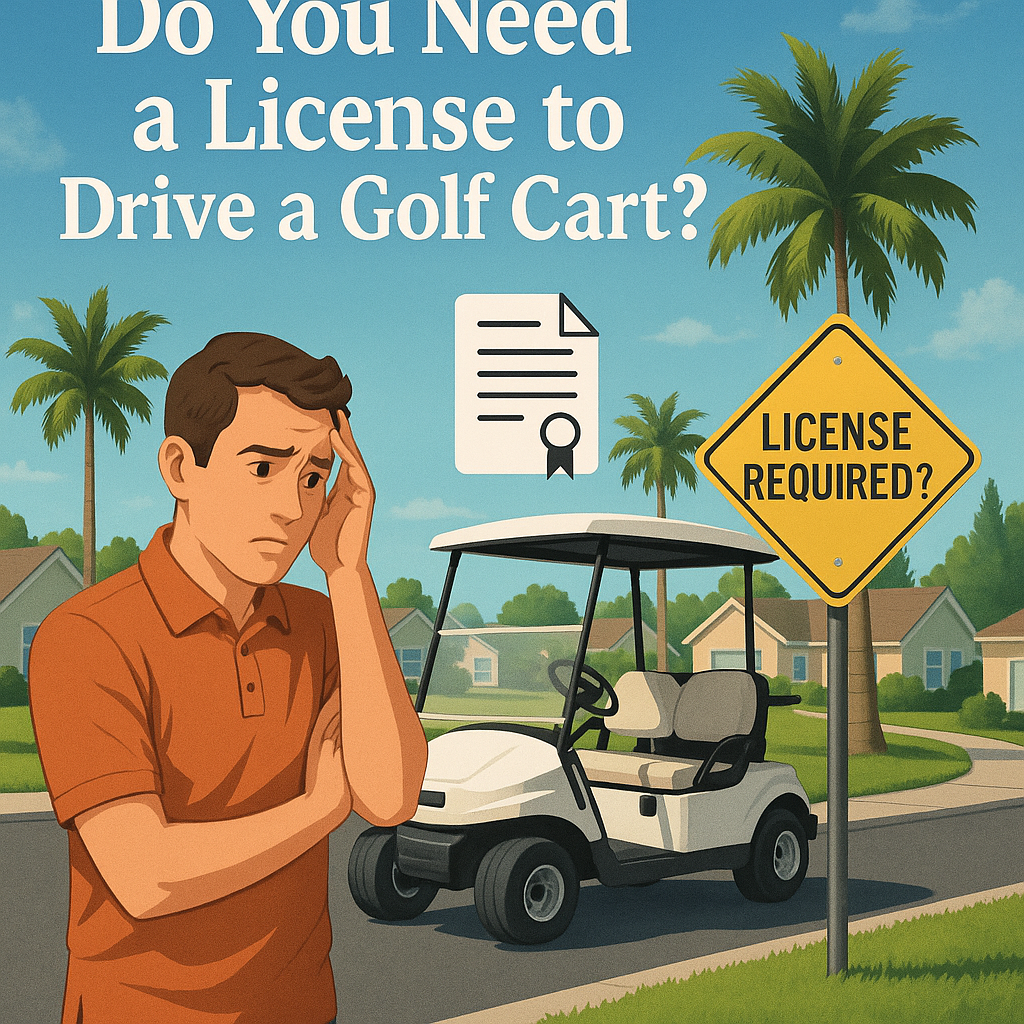
Table of Contents
Introduction
Navigating the realm of golf carts, from their origins to the legalities of driving one, can prove confusing. If you've ever asked yourself, “Do you need a license to drive a golf cart?” then you've come to the right place. This article delves into this topic, buttressing the information with federal standards and state laws.
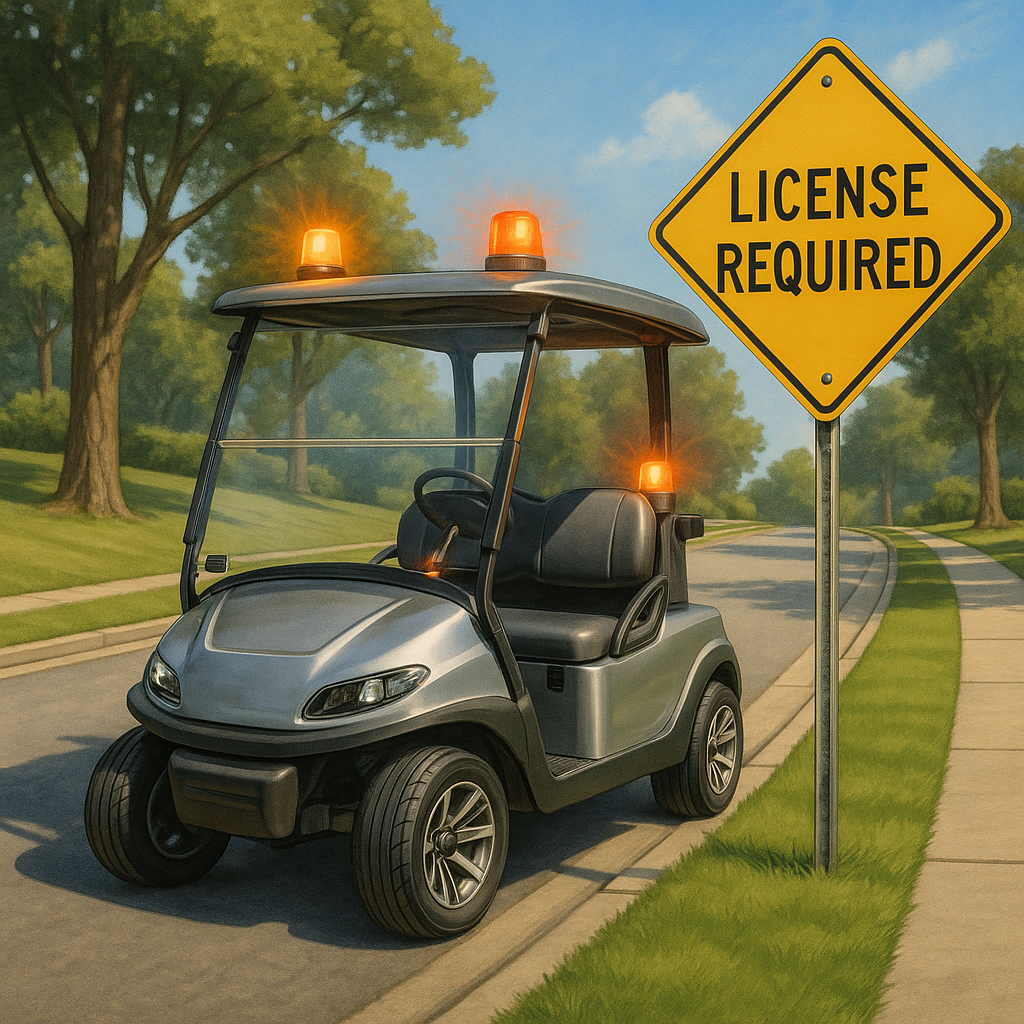
A Short History of Golf Carts
Golf carts made their debut in the early 1930s, designed as a means to assist the elderly and those with a physical handicap, making mobility on sprawling golf courses easier. These vehicles were initially powered by a gas engine; however, electric golf carts gradually gained popularity with their quieter operation and environmental friendliness.

The Popularity and Purpose of Golf Carts
Fast forward to today, and golf carts have transformed from just mere course helpers to multi-purpose vehicles. In addition to being an essential accessory on the golf course, they are now used in large estates, shopping malls, universities, airports, and more. Even some communities are designed around the use of golf carts as primary means of transportation. This widespread use prompts the inevitable question: Do you need a license to drive a golf cart?
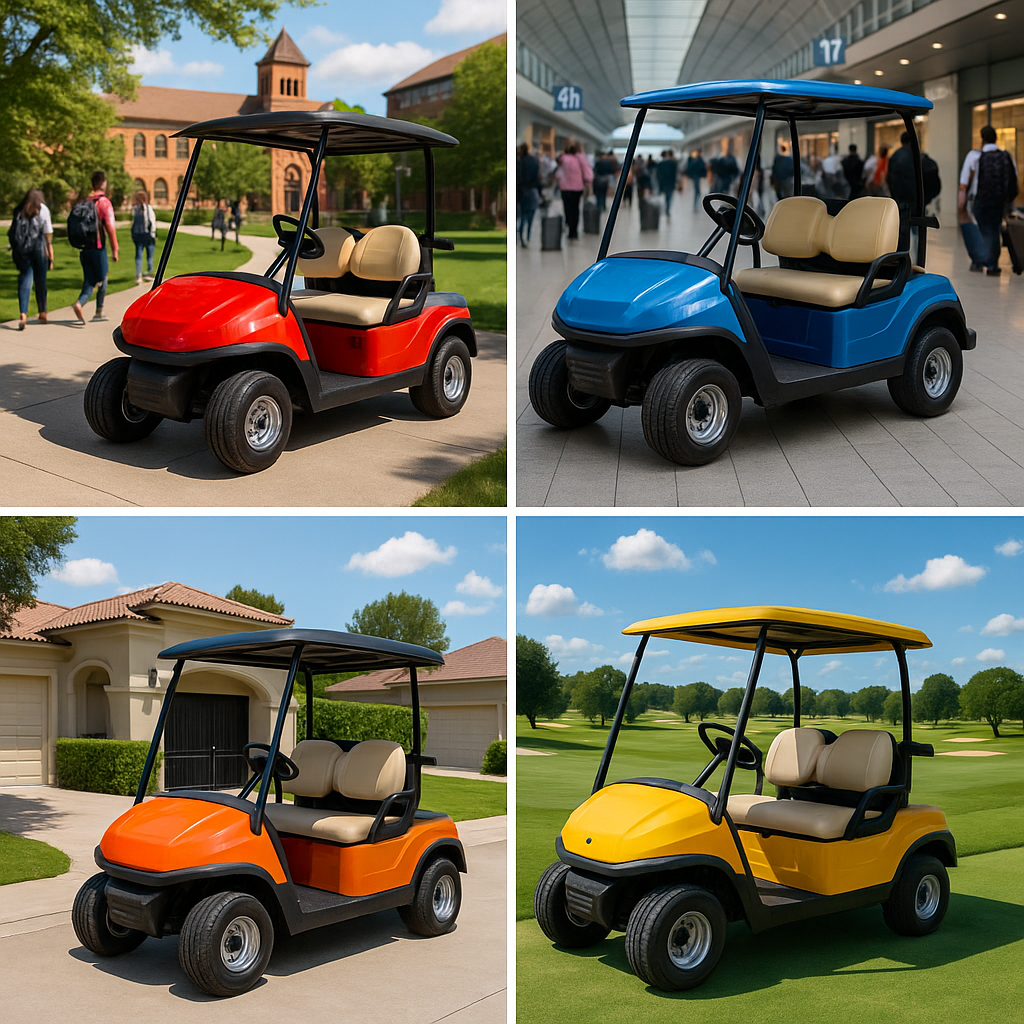
General Laws Regarding Golf Carts
When it comes to operating a golf cart, the legalities can depend heavily on where you are located, the type of streets you're traveling on, and even the classification of your vehicle. The law can differ from state to state, making it imperative to familiarize yourself with local guidelines.
Federal Standards and Definitions for Golf Carts
According to Federal law, golf carts are defined as vehicles that can't exceed speeds of 20mph, making them exempt from federal safety standards that apply to motor vehicles. Consequently, golf carts are restricted from operating on roads with a speed limit above 25mph, unless crossing the road or using a designated crossing area.
Golf Carts vs LSVs (Low-Speed Vehicles)
One point of confusion is the difference between golf carts and Low-Speed Vehicles (LSVs). LSVs, unlike regular golf carts, are classified as roadworthy and are capable of speeds between 20-25mph. Furthermore, these vehicles must be equipped with safety features such as headlights, seat belts, and turn signals as determined by federal safety standards. Consequently, when it comes to the matter of “do you need a license to drive a golf cart?” the answer may hinge on whether the vehicle in question is technically an LSV.
Visual Aid Suggestion: Deploy an infographic here to highlight the differences between golf carts and LSVs visually. Consider including speed limit, safety features, and road access as key comparison points.
Dissecting the particularities between golf carts and LSVs can become muddled. Yet, understanding the specifications of each is crucial in comprehending the legality of driving these vehicles, and more importantly, answering the burning question: Do you need a license to drive a golf cart?
Continuing through this series, we will unravel more about specific state laws, insurance needs, and safety standards everyone aiming to drive a golf cart should be aware of. Stay tuned!
Explaining the Licensing Process
So, do you need a license to drive a golf cart? The answer isn’t always straightforward, but we’re here to break down the licensing process for you.
A. General License Requirements for Driving a Golf Cart
The requirements for a golf cart driving license largely depend on where you live and how you intend to use your golf cart. Generally, if you plan to drive your golf cart on public roads, most states require a valid driver’s license. This is because golf carts are often classified as low-speed vehicles, which necessitate a license under federal standards. Remember, the legal age to obtain a license varies from state to state, so make sure to check on that too.
At the same time, it's crucial to understand that carrying a license is just one part of the puzzle. You typically also need to register your golf cart and have insurance.
B. Reasons Why a License May be Required
The main reason for needing a license to drive a golf cart is safety. Golf carts on public roads mingle with other traffic, which can pose risks if the driver is not adequately trained. A driving license ensures that you have basic knowledge of traffic rules and safety standards.
Another reason is accountability. If an accident occurs, a licensed driver can be held responsible for their actions. This is also where insurance comes into play.
Lastly, it's about legality. Simply put, many state laws require a license to operate low-speed vehicles, including golf carts, on public roads.
C. Process of Obtaining a License, If Applicable
If you do need a license to drive a golf cart, the process is similar to obtaining a regular driver's license. You will need to:
- Apply for a learner's permit.
- Pass a written exam about driving rules and safety regulations.
- Complete a certain amount of supervised driving (if required by your state).
- Pass a practical driving test.
Always remember to verify this process with your local DMV, as requirements can vary.
State-Wise Differences in Licensing Laws
Comparison Table of Different State Laws About Golf Cart Licensing
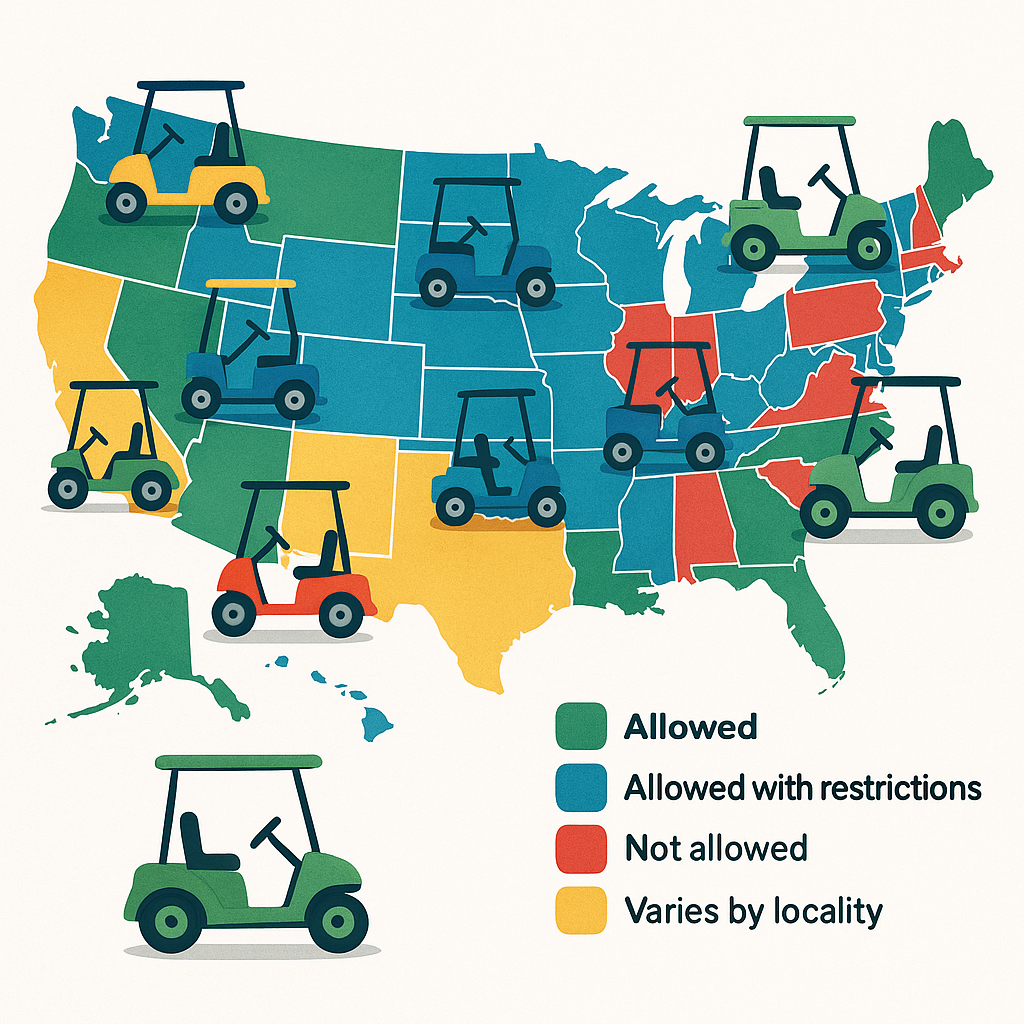
To visualize the differences in golf cart licensing laws, it would be beneficial to create a table providing a state-by-state rundown. This would include whether a license is needed, minimum age for driving, speed limit, and other related regulations.
Sample Table:
| State | License Required? | Minimum Age | Speed Limit |
|---|---|---|---|
| CA | Yes | 16 | 25 mph |
| FL | No | 14 | 20 mph |
| TX | Yes | 16 | 35 mph |
Important Tip – Verify with Local Traffic Authorities
Despite the general guidelines we've covered, always double-check with your local traffic authorities. They will provide the most accurate and up-to-date information about golf cart driving license requirements in your area.
In the end, the question, “do you need a license to drive a golf cart,” depends on various factors. It's not a simple yes or no answer, but understanding the licensing process and your state laws can guide you in the right direction.
Next, in Part 3 of our series, we'll dive deeper into the specific rules and regulations related to golf cart use on public roads. Stay tuned!
Rules for Driving Golf Carts on Public Roads
If you've ever asked the question, “Do you need a license to drive a golf cart?” you're not alone. Many people wonder whether it's legal to drive these low-speed vehicles on public roads, and if so, what the rules are. Let's tackle this topic in detail, covering federal rules, state variations, required safety equipment, driving hours, speed restrictions, and insurance requirements.
A. Federal Rules About Low-Speed Vehicles on Public Roads
The first important point to note is that federal standards do apply to driving golf carts on public roads. According to the National Highway Traffic Safety Administration, a golf cart is classified as a low-speed vehicle (LSV) if it has a top speed of 20-25 mph. As such, it falls under specific federal safety standards.
To answer the question, “Do you need a license to drive a golf cart on public roads?” – Yes, you do. Federal law requires drivers of low-speed vehicles like golf carts to have a valid driving license. This is one of the key safety standards set by the federal government.
B. State Variations: Where Golf Carts are Allowed vs Restricted
While federal law provides a general framework, state laws can vary significantly when it comes to golf carts. Therefore, it's important to understand the specific rules in your area. For example, some states allow golf carts on public roads with posted speed limits no higher than 35 mph, while others restrict them to certain zones or times of day.
Some states also require golf carts to be registered and insured, just like any other motor vehicle. So, when someone asks, “Do you need a license to drive a golf cart?” the answer is yes, and you may also need registration and insurance depending on your state.
C. Required Safety Equipment when Using a Golf Cart on a Road
Federal safety standards dictate that golf carts driven on public roads must be equipped with:
- Headlamps
- Front and rear turn signal lamps
- Tail lamps
- Stop lamps
- Reflectors: one red on each side as far back as possible and one red on the back
- A parking brake
- Windshield made of safety glass
These are necessary to ensure visibility and safety while driving, particularly during hours of darkness or inclement weather.
D. Driving Hours and Speed Restrictions
Another common question is whether there are restrictions on driving hours and speed. While specifics can vary based on local laws, golf carts are generally subject to the same rules as other vehicles regarding driving hours.
As for speed, remember that a golf cart is classified as a low-speed vehicle. Therefore, even if your golf cart is capable of higher speeds, you should not exceed the 20-25 mph range to stay within legal limits.
E. Insurance Requirements for Street-Legal Golf Carts
Now that we've addressed the question, “Do you need a license to drive a golf cart?” let's look at insurance. Much like a car, a golf cart that is driven on public roads often needs to be insured. Coverage can vary by state, but typically includes liability, collision, and comprehensive coverage.
Keep in mind that if your golf cart is not insured, you could be held personally responsible for any damages or injuries that occur while you are driving. Therefore, it's not just a matter of legality, but also of financial security and peace of mind.
In conclusion, whether or not you need a license to drive a golf cart on public roads depends on both federal and state laws, as well as the specifics of your golf cart and how you plan to use it. Always remember to prioritize safety, adhere to all legal requirements, and ensure you have the necessary insurance coverage.
Pros and Cons of Licensing Golf Carts
Benefits of Having a License When Operating a Golf Cart
The primary question, “do you need a license to drive a golf cart?” may yield different answers based on your location. However, it's essential to understand that driving a golf cart implies handling a low-speed vehicle, and thus, licensing is often seen as a necessary means to ensure safety.
The benefits of having a driving license when operating a golf cart include:
- Safety: A driving license ensures that the golf cart operator is familiar with basic driving rules. This knowledge is crucial, especially when driving on public roads.
- Legal Compliance: Depending on your location, state laws may require you to hold a driving license to operate a golf cart. This legal requirement is often enforced in areas where golf carts are used as low-speed vehicles on public roads.
- Decreased Liability: If an accident occurs, having a driving license can help protect you from significant legal and financial liability.
Negative Implications of Licensing
While licensing primarily offers benefits, it also has some drawbacks. Here are a few negative implications of requiring a license to drive a golf cart:
- Increased Costs: The process of obtaining a driving license involves costs, which may not be justified for individuals who only intend to drive the golf cart within private properties.
- Limited Usage: Younger family members or friends without a driving license may be legally unable to operate the golf cart, even in private settings.
- Time-consuming: The process of obtaining a driving license can be time-consuming, particularly for those who only wish to use the golf cart sporadically.
Other Legal Considerations
A. Insurance Requirements for Golf Carts
Besides the question, “do you need a license to drive a golf cart?” you should also consider insurance requirements. Like any other vehicle, it's prudent to have your golf cart insured. Here are a few points to consider:
- Liability Insurance: This insurance protects you if you're held responsible for damage or injury caused by your golf cart.
- Collision Insurance: This coverage pays for repairs to your golf cart in the event of a collision.
- Comprehensive Insurance: This insurance protects against damage from non-collision related incidents, like theft or weather damage.
Note: Insurance requirements may vary based on state laws and whether you plan to drive the golf cart on public roads.
B. Safety Standards and Speed Limits
When operating a golf cart, you should also pay attention to safety standards and speed limits. Federal standards classify golf carts as low-speed vehicles that should not exceed 20 miles per hour. However, these standards can vary based on state laws.
Here are some safety standards to consider:
- Seat Belts: Some states require seat belts in golf carts, especially if they're driven on public roads.
- Lights and Signal Systems: If you're driving your golf cart after dark or on public roads, it must be equipped with headlights, brake lights, turn signals, and a rearview mirror.
- Speed Limits: Most golf carts are designed to not exceed 20 miles per hour. However, if your cart can travel faster, be aware that different speed limits may apply.
In conclusion, while it may initially seem unnecessary to obtain a license to drive a golf cart, considering the safety, legal, and insurance aspects can help you understand why it's often required. Always check your local state laws to ensure you're in compliance.
FAQs
A. Do I need a special license to drive a golf cart?
The question, “Do you need a license to drive a golf cart?” often comes up among golf cart owners or potential buyers. The answer varies based on your location as different state laws apply. In general, a driving license is not always necessary to operate a golf cart. However, many states require operators to be at least 16 years of age and hold a valid driver's license.
In some jurisdictions, golf carts are classified as low-speed vehicles. This classification subjects them to certain federal standards and regulations. For example, if the golf cart can travel more than 20 mph but less than 25 mph, it might be categorized as a low-speed vehicle, and the driver may need a regular driving license.
Here are a few examples of state laws:
- In Florida, you don't need a license to drive a golf cart unless it's on public roads.
- In California, a driver's license is required for golf carts classified as low-speed vehicles.
- In South Carolina, anyone over the age of 15 can operate a golf cart with a valid driver's license or permit.
B. Can a minor drive a golf cart?
Whether or not a minor can drive a golf cart depends on the laws of the state. As previously mentioned, some states, like South Carolina, permit individuals as young as 15 to operate golf carts with a valid driver's license or permit. In many states, a minor can drive a golf cart on private property with the owner's permission. However, a minor usually cannot legally drive a golf cart on public roads. It's best to check your local and state laws to get accurate information.
C. Is it legal to drive a golf cart on public roads?
The legality of driving a golf cart on public roads depends on local and state laws, as well as the golf cart's speed capabilities. Golf carts that meet certain safety standards and are classified as low-speed vehicles may be allowed on certain public roads.
For instance, in some states, golf carts may be driven on public roads where the speed limit is 35 mph or less. They may also require specific safety features like headlights, taillights, seat belts, and turn signals. Additionally, you may need to have insurance for your golf cart if you plan to drive it on public roads.
However, it's important to note that even if it's legal in your state, not all areas or specific roads may allow golf carts. Always check with your local city or county ordinances to ensure you're following all rules and regulations.
Conclusion
In contemplation, whether or not you need a license to drive a golf cart largely depends on your location, the type of golf cart you have, and where you plan to drive it. Always check your local and state laws before operating a golf cart, particularly if you plan to use it on public roads.
A. Box Section: Quick Facts – Short summary on golf cart licensing
- Golf cart licensing requirements vary by state.
- Some states require a valid driver’s license to operate a golf cart.
- Golf carts that can travel over 20 mph may be classified as low-speed vehicles, which may require a driver's license.
- Minors can typically drive golf carts on private property but not on public roads.
- It's legal to drive a golf cart on public roads in some states, provided they meet certain safety standards and have the required insurance.
Remember, while golf carts can be fun and practical, it's important to operate them safely and legally. Always check with local and state regulations before driving a golf cart, particularly on public roads.

